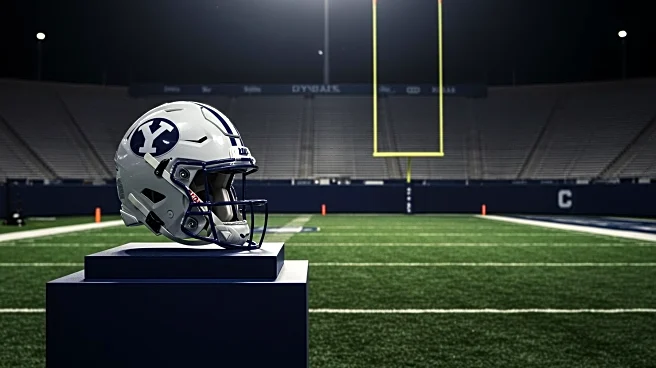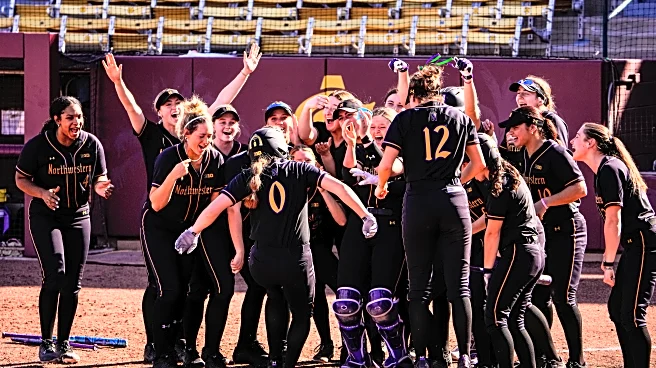What's Happening?
The BYU Cougars football team is anticipated to face a challenging season in 2025 following their successful 2024 campaign where they won 11 games. CBS Sports analyst Chris Hummer highlights several factors contributing to a potential regression. The team has lost 12 starters from the previous season, including eight from their defense, which was a key component of their success. Additionally, the departure of quarterback Jake Retzlaff, who transferred to Tulane after violating the honor code, leaves a significant gap in the team's lineup. The Cougars' schedule for 2025 is notably difficult, with away games against Colorado, Iowa State, and Texas Tech, and home games against TCU and Utah, along with a challenging Week 2 visit to East Carolina.
Why It's Important?
The anticipated regression of the BYU Cougars in the 2025 season is significant for several reasons. The loss of key players, particularly on defense, could impact the team's ability to replicate their previous success. The departure of quarterback Jake Retzlaff further complicates their prospects, as the quarterback position is crucial for team leadership and performance. The challenging schedule adds pressure, potentially affecting the team's standings and bowl game eligibility. This situation highlights the volatility in college football, where player turnover and scheduling can dramatically alter a team's trajectory from one season to the next.
What's Next?
The BYU Cougars will need to rely on their new transfer additions to fill the gaps left by departing players. However, the transfer class is ranked No. 82 nationally, which may not be sufficient to bridge the gap between the lost production and the nine-win barrier needed for a successful season. The team will have to strategize effectively to navigate their tough schedule and aim for a competitive performance. Fans and analysts will be watching closely to see how the team adapts to these challenges and whether they can defy expectations.
Beyond the Headlines
The situation with Jake Retzlaff underscores the impact of non-sporting factors, such as adherence to institutional codes, on college athletics. This incident highlights the intersection of personal conduct and athletic performance, raising questions about how universities balance these aspects. Additionally, the reliance on transfer students reflects broader trends in college sports, where teams increasingly depend on transfers to maintain competitiveness amidst high turnover rates.









